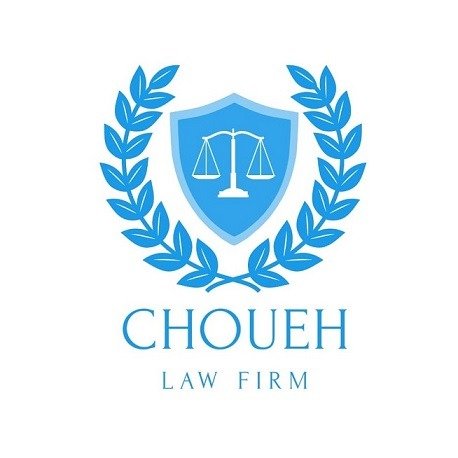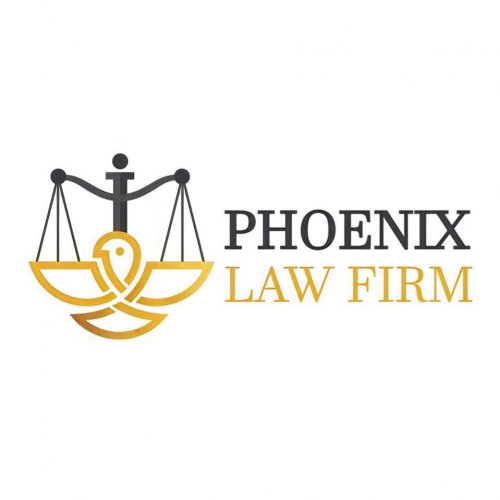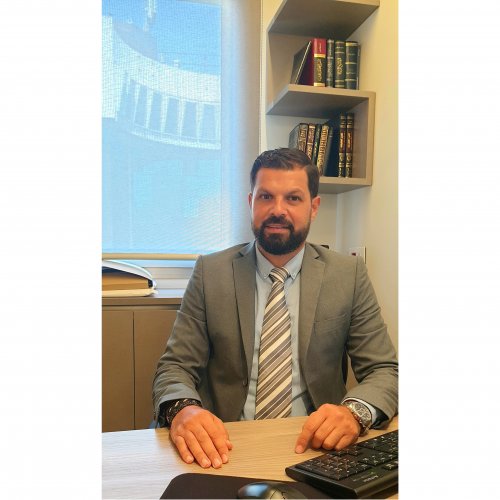Best Structured Finance Lawyers in Beirut
Share your needs with us, get contacted by law firms.
Free. Takes 2 min.
List of the best lawyers in Beirut, Lebanon
About Structured Finance Law in Beirut, Lebanon
Structured Finance refers to complex financial instruments offered to borrowers with unique and complicated needs that do not fit conventional lending standards. In Beirut, Lebanon, Structured Finance often involves securitization, asset-backed securities, syndicated loans, and project finance. This area of law is essential for facilitating significant commercial and infrastructure projects such as real estate development, energy generation, and large-scale investments. Lebanese law firms and financial institutions regularly collaborate to provide innovative financing solutions compliant with local regulations and international best practices.
Why You May Need a Lawyer
Structured Finance transactions in Beirut can be extremely complex due to stringent legal frameworks, layered financing structures, and cross-border considerations. Here are some common reasons individuals or businesses may require legal help related to Structured Finance:
- Drafting and reviewing structured finance agreements and documentation
- Facilitating syndicated loans or large project financings
- Ensuring compliance with the Lebanese Central Bank and Capital Markets Authority regulations
- Mitigating potential legal risks and liabilities
- Structuring asset-backed or mortgage-backed securities
- Navigating tax, currency, or transfer restrictions under local law
- Resolving disputes or defaults in structured finance deals
Local Laws Overview
Structured Finance in Beirut, Lebanon, is governed primarily by commercial, banking, and financial services laws. Key regulatory aspects include:
- Central Bank of Lebanon (BDL) Regulations - The BDL oversees all financial instruments and enforces compliance with anti-money laundering and prudential requirements.
- Capital Markets Law No. 161 of 2011 - Establishes the regulatory framework for the Lebanese capital markets, including the issuance and trading of securities.
- Banking Secrecy Law - Protects client confidentiality and impacts disclosure requirements in structured finance deals.
- Commercial Companies Law - Governs the structuring of business entities involved in finance transactions.
- Civil Code and Enforcement Law - Outlines contract obligations, collateral, and legal recourse in case of default.
These laws, along with various circulars and decrees, create a unique legal environment for Structured Finance in Beirut. Expert legal counsel ensures all agreements are valid, enforceable, and tailored to the Lebanese context.
Frequently Asked Questions
What is Structured Finance?
Structured Finance is a broad term covering sophisticated financial arrangements that go beyond traditional lending, such as securitization, collateralized debt, and project financing. These are used to finance major projects or manage risk.
Who are the typical participants in Structured Finance transactions in Beirut?
Key participants include borrowers (corporations or developers), banks, financial advisors, legal counsel, the Central Bank, and sometimes international investors or lenders.
What regulations govern Structured Finance in Lebanon?
Structured Finance is mainly regulated by the Central Bank of Lebanon, the Capital Markets Authority, the Commercial Companies Law, Banking Secrecy Law, and other sector-specific regulations.
Can foreign investors participate in Structured Finance deals in Beirut?
Yes, foreign investors often participate, but must comply with local currency controls, regulatory approvals, and proper documentation to enter the Lebanese market.
Are there legal risks in Structured Finance transactions?
Yes, risks include regulatory non-compliance, enforceability of collateral, currency exposure, bankruptcy, and challenges related to banking secrecy laws.
Is Islamic finance part of Structured Finance in Lebanon?
Yes, Islamic finance structures such as Sukuk are permitted and often used for Sharia-compliant investors, provided they meet Lebanese legal requirements.
What is the role of lawyers in Structured Finance in Beirut?
Lawyers structure transactions, draft and negotiate contracts, ensure regulatory compliance, resolve disputes, and protect client interests throughout the financing process.
What types of assets can be securitized in Lebanon?
Assets may include loans, receivables, mortgages, lease payments, and other revenue streams, subject to relevant approvals and regulatory compliance.
How are disputes resolved in Structured Finance deals?
Disputes are typically resolved through Lebanese courts or arbitration, depending on the contract terms. Many contracts specify international arbitration for cross-border matters.
What documentation is needed for Structured Finance transactions?
Documentation typically includes loan agreements, security documents, offering circulars or prospectuses, trust deeds, collateral registries, and regulatory approvals.
Additional Resources
For more information or assistance in Structured Finance in Beirut, consider contacting or researching the following entities:
- Central Bank of Lebanon (Banque du Liban - BDL)
- Capital Markets Authority (CMA) of Lebanon
- Lebanese Association of Banks
- Beirut Bar Association
- Ministry of Finance - Lebanon
- International Finance Corporation (IFC) - Lebanon programs
Next Steps
If you require legal advice or assistance in Structured Finance in Beirut, Lebanon, take these recommended steps:
- Gather all relevant documents related to your transaction or inquiry
- Identify your objectives, investment structures, and financing needs
- Contact a reputable Lebanese law firm or legal specialist experienced in Structured Finance
- Prepare questions regarding legal requirements, risks, and compliance
- Arrange an initial consultation to outline your case and receive tailored legal guidance
Taking early legal advice will help navigate the complexities of Structured Finance and safeguard your interests in Beirut’s dynamic financial market.
Lawzana helps you find the best lawyers and law firms in Beirut through a curated and pre-screened list of qualified legal professionals. Our platform offers rankings and detailed profiles of attorneys and law firms, allowing you to compare based on practice areas, including Structured Finance, experience, and client feedback.
Each profile includes a description of the firm's areas of practice, client reviews, team members and partners, year of establishment, spoken languages, office locations, contact information, social media presence, and any published articles or resources. Most firms on our platform speak English and are experienced in both local and international legal matters.
Get a quote from top-rated law firms in Beirut, Lebanon — quickly, securely, and without unnecessary hassle.
Disclaimer:
The information provided on this page is for general informational purposes only and does not constitute legal advice. While we strive to ensure the accuracy and relevance of the content, legal information may change over time, and interpretations of the law can vary. You should always consult with a qualified legal professional for advice specific to your situation.
We disclaim all liability for actions taken or not taken based on the content of this page. If you believe any information is incorrect or outdated, please contact us, and we will review and update it where appropriate.










